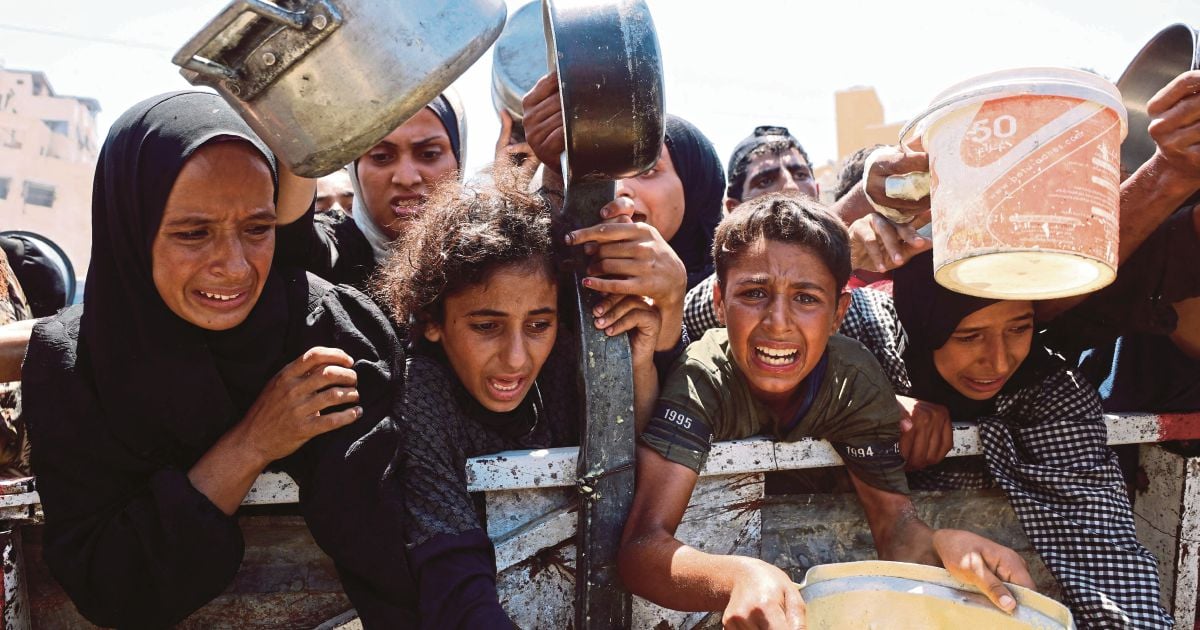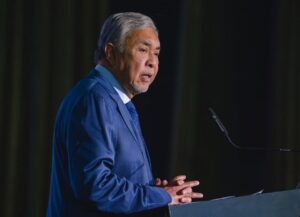THE New York Declaration on the Peaceful Settlement of the Question of Palestine, issued late last month and endorsed by the Arab League, the European Union and 17 states is a masterclass in political evasion — fine words that dare not confront the central facts of the Israel-Palestine conflict.
The declaration bluntly demands that Hamas relinquish power in Gaza and disarm, handing authority over to the Palestinian Authority (PA).
Yet when it comes to Israel’s decades-long occupation, its illegal blockade and devastating military campaign that has killed more than 60,000 Palestinians — most of them women and children — it retreats into euphemism.
It is a deliberate choice to privilege political convenience over legal obligation.
Under the Fourth Geneva Convention, Israel, as the occupying power, must protect the civilian population.
The destruction of homes, hospitals, schools and water systems; the starvation of civilians; and the displacement of nearly two million people are not “collateral damage” but grave breaches under Articles 53 and 147, attracting individual criminal responsibility.
The declaration rightly condemns Hamas’ Oct 7 attacks as war crimes and crimes against humanity. But justice cannot be selective.
The Rome Statute of the International Criminal Court applies equally to armed groups and states. If its authors truly believe in the rule of law, then they must apply it without fear or favour.
The declaration’s vision for Gaza’s future is equally troubling. By proposing the transfer of authority to the PA backed by an international stabilisation mission, it risks turning the PA into an unelected subcontractor for the occupation — administering Gaza without real sovereignty.
History shows that transitional administrations, from Timor-Leste to Kosovo, succeeded only when paired with credible elections, clear timelines for self-governance and respect for self-determination. The declaration offers none of these guarantees. Most tellingly, it evades the root cause of Palestinian resistance: the occupation itself.
The International Court of Justice’s (ICJ) 2024 advisory opinion reaffirmed that Israel’s occupation is illegal and must end “as rapidly as possible” while the United Nations Security Council (UNSC) Resolution 2334 demands the cessation of all settlement activity, calling it a “flagrant violation” under international law.
Yet the declaration treats these binding norms as optional talking points. It says nothing of the siege imposed on Gaza since 2007, or the refugees’ right of return under United Nations General Assembly Resolution 194.
There is no insistence on lifting the blockade, opening humanitarian corridors or securing reparations for the destruction. In short, it offers Palestinians process without protection and symbolism without sovereignty.
If the world is serious about peace, any credible agreement must meet three minimum standards:
Impartial investigations into all alleged war crimes and crimes against humanity — whether committed by Hamas, Israel or any other actor — under ICC jurisdiction or an independent UN mechanism.
Enforceable timelines for ending the occupation, dismantling illegal settlements and lifting the blockade, in compliance with the ICJ’s opinion and existing UNSC resolutions.
Guarantees of Palestinian self-determination through internationally supervised elections in Gaza and the West Bank, and constitutional processes reflecting the will of the Palestinian people — not the dictates of external powers.
Without these, the declaration is not a peace plan but a blueprint for managing Palestinian submission.
Some will argue that half-measures are better than none. But unjust peace is no peace.
I have spoken to Palestinian children who have lost their entire families and represented them in legal proceedings. I have read the legal texts meant to protect them — and seen how those protections collapse when expedience trumps principle.
The world does not need more declarations that appear balanced on paper but tilt towards power in practice. It needs the courage to hold every violator of international law accountable, and the resolve to end an occupation that is both illegal and immoral.
Until then, Gaza will remain not a test case for peace, but the gravest indictment of the international system’s unwillingness to enforce its own laws.
The writer is chairman of Centre for Human Rights Research & Advocacy
© New Straits Times Press (M) Bhd






![A fiery path of faith and renewal [WATCH]](https://prwire.my/wp-content/uploads/2025/11/A-fiery-path-of-faith-and-renewal-WATCH-300x157.jpg)